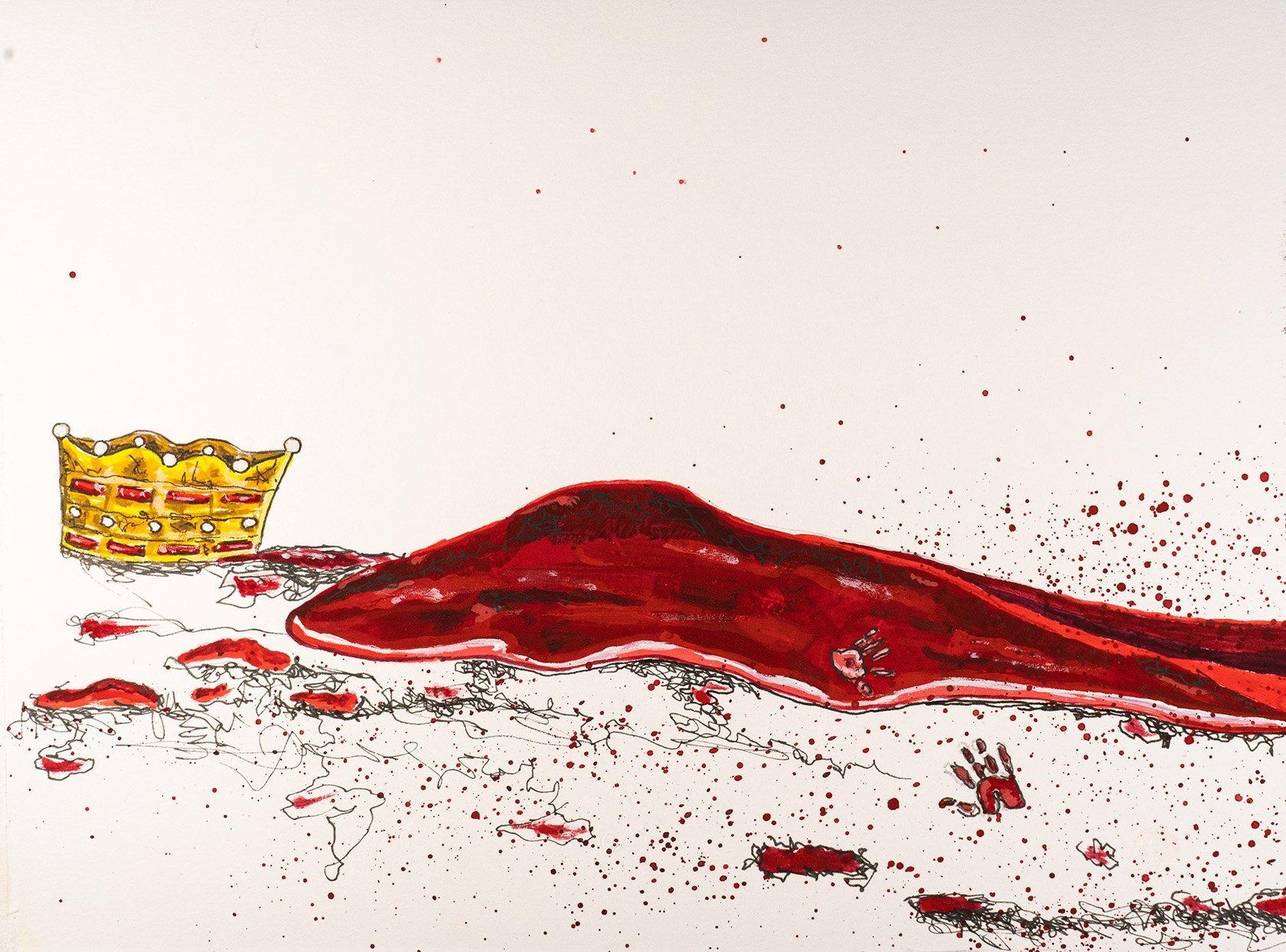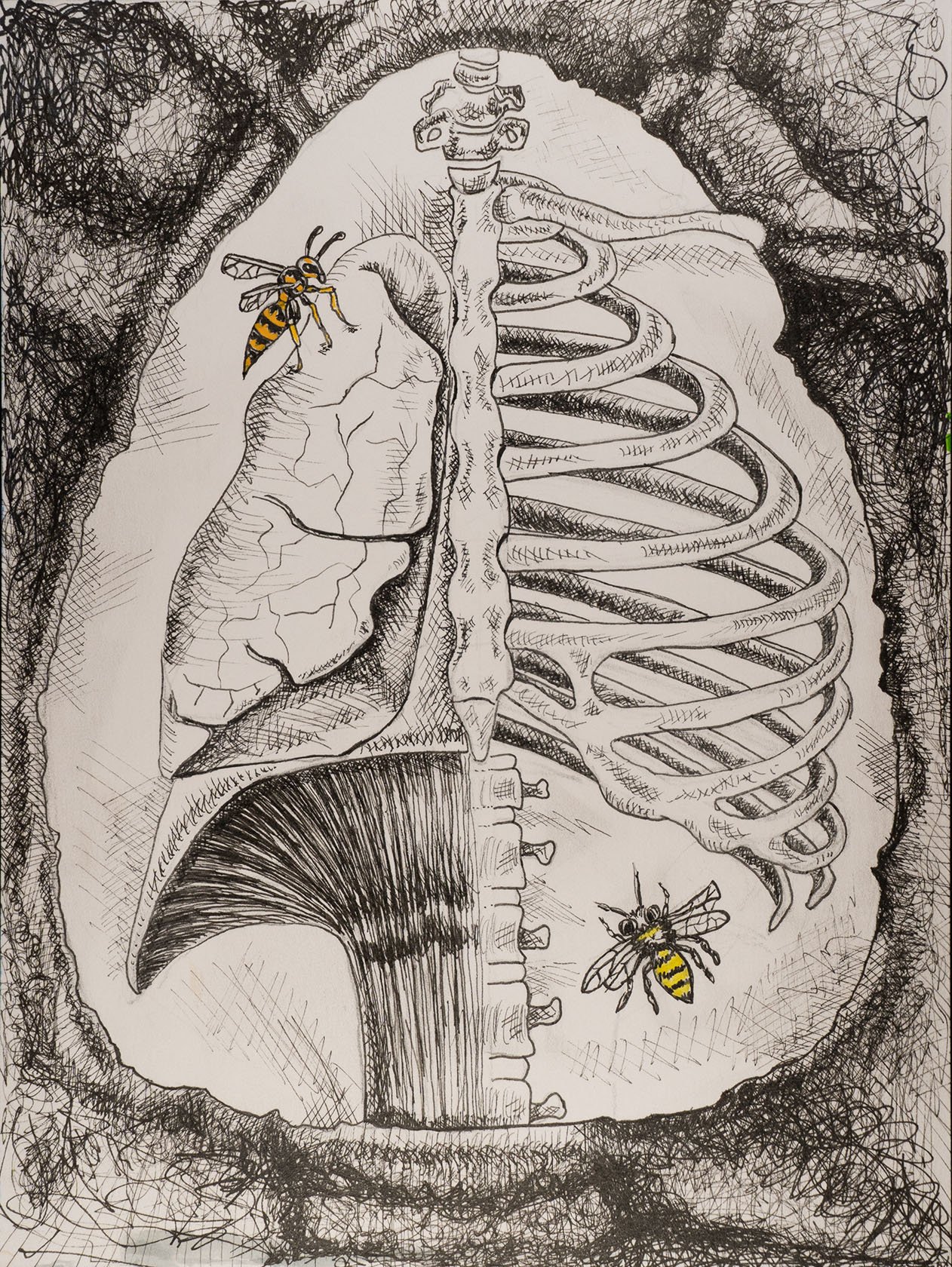
Sample Poems
-
It didn’t surprise them, exactly, how cleanly the blade slipped between the bones of his neck, how, with just the slightest heft of their bodies on the hilt, his screaming—like a child’s, really—cratered into a singular whimper, then a wheeze. With his head off, the King—but was it right to call him that now?—was nothing more than what all corpses are: a heap of flesh, a sinewy mess, time’s ragged lace. It was a mistake, they had come to realize, to allow him the Tyrian purple stole of his coronation. They had been sentimental, had pitied the old man. Splayed across the platform, it sopped up the blood like a leech. It was ruined. Upon the scaffold, they understood why it is one wears a crown. They dipped their hands in the crimson coagulating around their feet and placed their sticky palms over their hearts. When they held up his head, the crowd cheered. Their fingers clutching its wispy hair, it was heavy, but not too heavy, not too heavy.
-
Their hearts of glass were filled with sand, their dunes sculpted by the blood’s shifting winds. Their hearts of blood were brined in salt, their tides the swells of tearless mothers who would not turn from catastrophe. Each had a story they would tell of each other. Each had a story they would tell of themselves. Each had a story they would not tell, a kind of melody played on the brain’s clavier. They knew each other as strangers know the city they share, how one morning a season shifts, a street cools beneath an autumn evening’s fog. How after it rains, you open a window. They knew each other like neighbors listening to each other through the wall, their ears like lips about to kiss. They knew each other like playing children understand each other as familiars, how, as in the middle of playing pretend, they become a house they can properly haunt, how, in that moment, a movement they might be and might become.
Originally published in Tupelo Quarterly.
-
The red comes after. Their cowls are first blue, or they are green, or they are a remarkable yellow shining through its dye. Every day, the hard work. For hours, they lop open wolves, searching their bellies for the mothers of their mothers. Every day, they whet the axe blade. Within some grove, the muted echoes, the thwack, drag, and thwack. For hours, they burn entrails, seek a premonition in the smoke. They pack cups full of ash, pick out pieces of bone. They line their huts with hundreds of these cups. They wash their hands in the creek, break their bread. They eat. The woodsmen the next town over tell stories about them, how they are always on a journey, heading for a home. The children fashion little dolls of flax and wool, dip them in the broth of madder root. Those rustics believe that sharing little myths about those girls will insulate them in the safety of story. But we—we know to lock our doors. The things we tell you before you fall asleep, dear ones, are not meant to usher you into the dark halls of slumber. We do not tell you them so that you would learn the proper place to harbor your fear. The silks you feel brushing your face are not the gauzy curtains of dream. Do not close your eyes too tightly in the starlight.
Originally published by the tiny journal.

About Me
I am the author of the poetry collections The Sisters (Black Ocean, 2024) and Other Psalms (University of North Texas Press, 2015), as well as The Single Life: Unpatriarchal Manhoods in English Renaissance Literature (University of Alabama Press, 2025). I live in Carlisle, Pennsylvania, and research and teach at Shippensburg University, where I am an associate professor of early modern British literature and creative writing.
